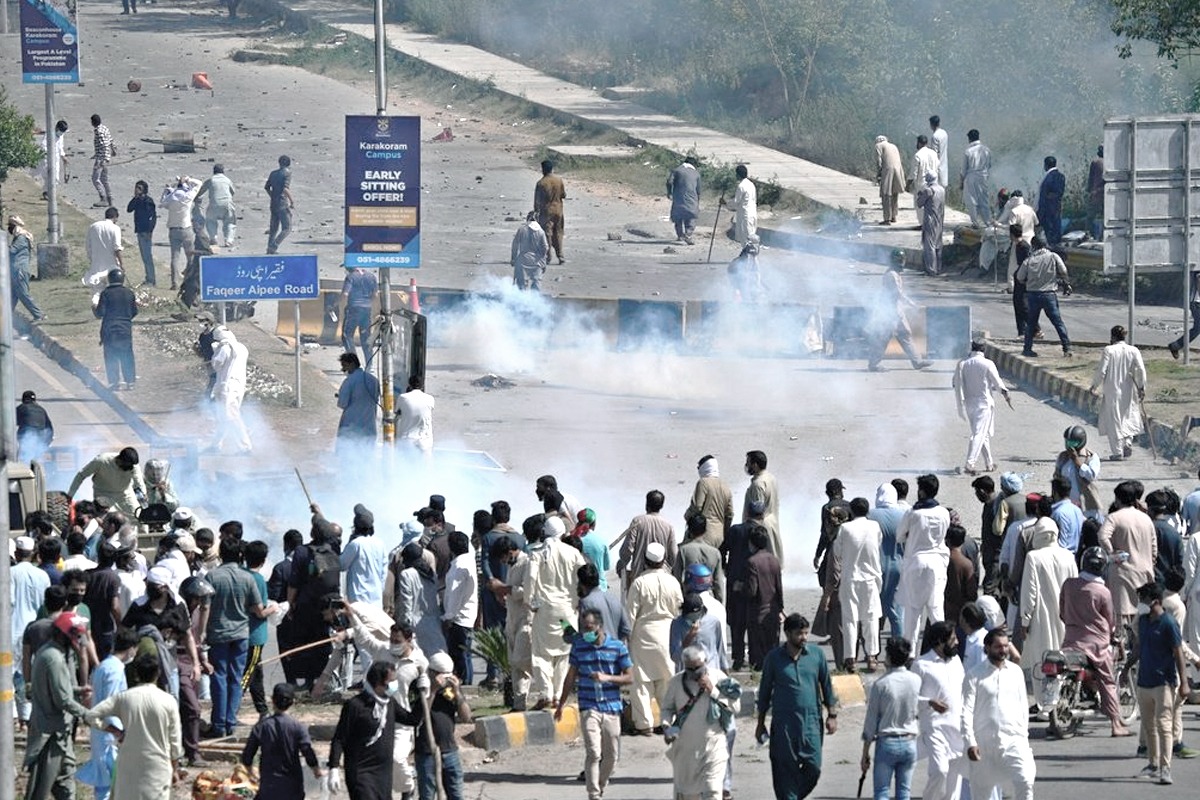

This week’s mayhem in Pakistan presented a rare opportunity for those of goodwill within the Indian state and society to reach out to Kashmiris.

‘Inn kambakhton ne hamara jeena haraam kiya tha. Ab inka beda garkh hoga. Main bahut khush hoon aaj (These godawful people had made our lives miserable. Now, they will sink. I am very happy today).’ Those words flowed excitably from an older Kashmiri on Tuesday, as news filtered in that Imran Khan had been arrested.
The older man foresaw the turmoil that would engulf Pakistan due to the arrest, but he also predicted that the authorities would execute Khan. When someone pointed out that it would only exacerbate the country’s unrest, he replied that they would deploy forces everywhere.
After all, he added, there had been no response (in Kashmir) after the constitutional changes (in August 2019, since troops were deployed all over). Soon, he reverted to the elation with which he had begun the phone conversation. Even if there was more turmoil and destruction, he would be delighted.
‘Azadi’ cries in Pakistan
By Thursday evening, the intervention of the courts had helped to settle things down somewhat. But Kashmiris by and large remained glued to their phones, watching videos of events in Pakistan with intense keenness.
Some of them must have seen the viral video of a Pakistani remarking derisively at a chaotic scene that the Pakistan Army had wanted to win Kashmir, but was being protected now by the (Pakistan) Punjab Police.
Ironically, one of the common slogans in Pakistan during the days of intense unrest was ‘azadi (freedom)’ which has been a war cry for Kashmir. ‘Chheen ke lenge, azadi. Tera baap bhi dega, azadi (we’ll wrest freedom. Even your father will give us freedom).’
It has become apparent during this period of turmoil that many Pakistanis desire freedom from their own army and government, viewing prominent figures in both institutions as traitors to the nation. Kashmiris have already been shocked by the economic disaster unfolding in Pakistan in recent months and years, as viral videos have shown instances of food desperation.
Differing perspectives
The elderly Kashmiri quoted earlier is one of the few sensible and grounded individuals in the region. Even in the 1980s, he understood the trauma and failures associated with the militant uprising that was being planned at the time.
His mother was unimpressed when her step-son showed her the AK-47 rifle he had brought back from Pakistan. Going to the back of the house, she returned with a shovel. ‘Here, take this, and go and remove that mountain,’ she said, signalling that the task of taking on the Indian state with an automatic rifle was as challenging.
However, this grounded perspective is rare. Most Kashmiris have been captivated by the idea of what Pakistan, along with the UN, the US, the UK, and others, could achieve to secure a paradise-like future for them.
A Kashmiri policeman told friends that, a few months after the constitutional changes of 2019, he saw some people creep timidly out of their home upon hearing the sound of military vehicles pass nearby, asking if the Pakistan Army had arrived.
Much of this child-like hope stemmed from the widespread trust in Imran Khan’s ability (as long as he was prime minister) to accomplish a great deal more than his predecessors.
Rare opportunity
This week’s mayhem in Pakistan presented a rare opportunity for those of goodwill within the Indian state and society to reach out to Kashmiris at large, and speak to them of the unhappy political, economic, social, and geopolitical realities of Pakistan, and the alternative possibilities.
Of course, to be credible, positive changes must correspondingly be visible on the ground and in the polity. Sadly, there has been little to show for the promised new Kashmir — such as, at the least, some radical steps for the welfare of the poor, deprived castes and communities, women, and others across the erstwhile state.
What people have, by and large, experienced is corruption, being kept under wraps, and a general sense of limbo — plus a revival of militancy, as recently evident in Rajouri and Baramulla. Such an environment does not easily foster a change of hearts and minds.
As for inter-community harmony, Prime Minister Modi’s recent outreach to minorities, as on Eid and Easter and through the Global Buddhist conference, has not made an impact.
This may partly be attributed to a vacuum of discussion and exchanges of views, as also to a deeply entrenched, resilient, and effectively backed matrix for continued uncertainty, if not continued conflict and unrest too.